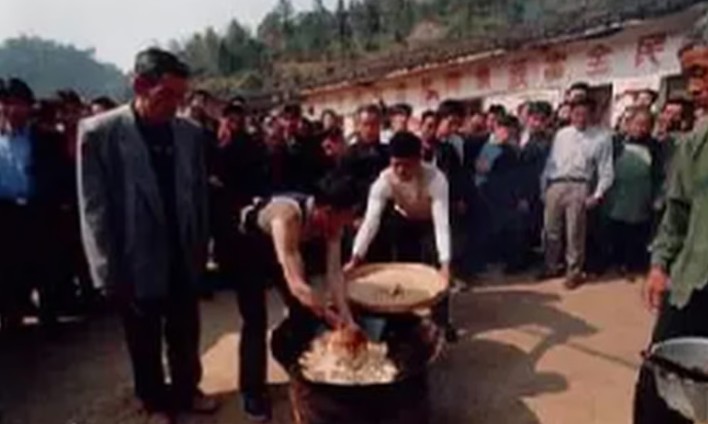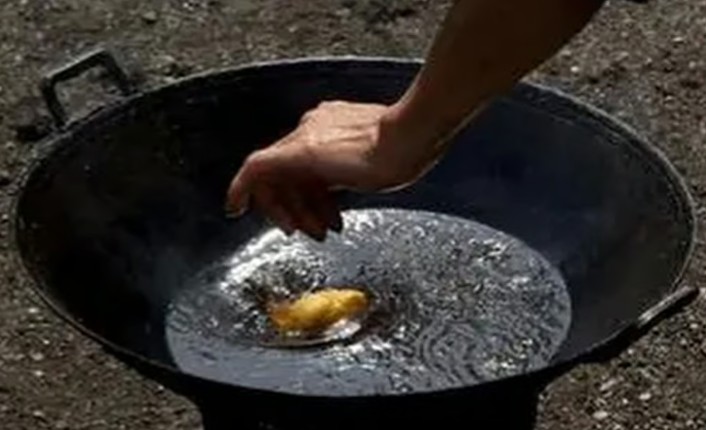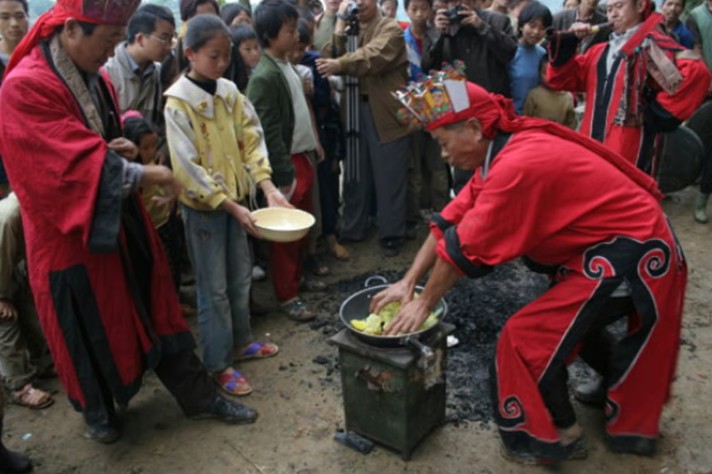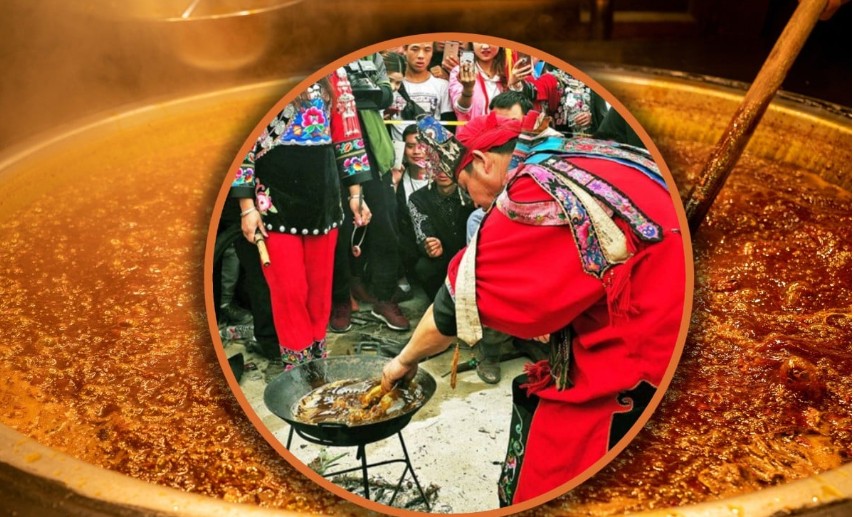Judgment by Boiling Oil A Fiery Ancient Chinese Trial That Turned Truth Into Heat
In ancient China there was a method to determine whether a person was guilty of theft by using hot oil. What do you suppose they did? It was called the ritual of dipping oil and it served to render final decisions in theft or debt disputes. It was used when obvious evidence seemed lacking. It was practiced in rural areas of southwestern China, especially among the Yi people who lived in Sichuan. At the time judicial medicine was underdeveloped and people lacked knowledge to uncover the truth. Moreover, the Yi feared officials and authorities, so they preferred to settle difficult matters on their own and with the help of local shamans. According to officials’ records, the peoples who used the oil trial filed far fewer petitions for court decisions.

In This Article:
- The Ritual of Dipping Oil Used to Decide Theft and Debts
- How the Oil Trial Worked The Accused Must Retrieve Objects Barehanded
- The Shaman’s Hidden Hand The Secret Manipulations Behind the Oil
- Ancient India’s Rice Chewing Verdict A Different Kind of Trial
- Which Is More Honest The Human Court in China or the Soulless Rice in India
- Which Is More Honest The Human Court in China or the Soulless Rice in India
The Ritual of Dipping Oil Used to Decide Theft and Debts
The ritual of dipping oil was believed to help distinguish truth from lies. It was practiced when there was not enough obvious evidence. It was used in rural southwestern China, especially among the Yi people of Sichuan. Judicial medicine was not well developed, leaving people with limited knowledge to uncover the truth. The Yi feared officials and authorities and therefore preferred to solve disputes with the help of local shamans. Records indicate that communities using the oil trial filed far fewer petitions for formal judgments.

How the Oil Trial Worked The Accused Must Retrieve Objects Barehanded
It was called the ritual of dipping oil and served to render final decisions in theft or debt disputes. The ritual was conducted when obvious evidence was lacking, in rural southwestern China among the Yi people of Sichuan. The shaman heated vegetable oil in a cauldron to boiling, recited spells, and performed sacred rites while a small object was dropped into the pot. The object varied by locality, but across China it was usually a grain of rice; in some villages, rings, stones, or even tiger teeth were used. The accused must retrieve these objects with bare hands. If the hand is injured, the defendant is considered guilty; if the hand remains unharmed, he is considered innocent.

The Shaman’s Hidden Hand The Secret Manipulations Behind the Oil
The oil ritual was not a simple test. The shaman carefully watched the faces of all participants—usually an adult and highly perceptive person. He could steer the ritual through cunning methods to reveal the person he truly believed guilty. For example, the shaman might secretly add vinegar to the oil. Vinegar has a higher density, so it sinks to the bottom; when heated, it releases bubbles, making the surface appear to boil even if the temperature isn’t very high. If the accused quickly dips his hand into the oil at this moment and retrieves the objects, he will likely remain unharmed and be declared innocent. The Chinese court of oil rested on the shaman’s tricks and close observation.

Ancient India’s Rice Chewing Verdict A Different Kind of Trial
In ancient India there was a rice-chewing trial, which I have already written about. The defendant chewed hard rice for a long time and then spat it onto a leaf. If the rice bore blood, the person was guilty. This is explained as scientific enough, because stress can suppress saliva. Then the rice would scratch the gums without wetting them, producing blood. Some science, at least. But where do you think a more honest court lies — China’s human system or India’s soulless rice?

Which Is More Honest The Human Court in China or the Soulless Rice in India
Some science aside, but where do you think a more honest court lies — the human court in China or the soulless rice in India?

Which Is More Honest The Human Court in China or the Soulless Rice in India
Some science aside, but where do you think a more honest court lies — the human court in China or the soulless rice in India?


